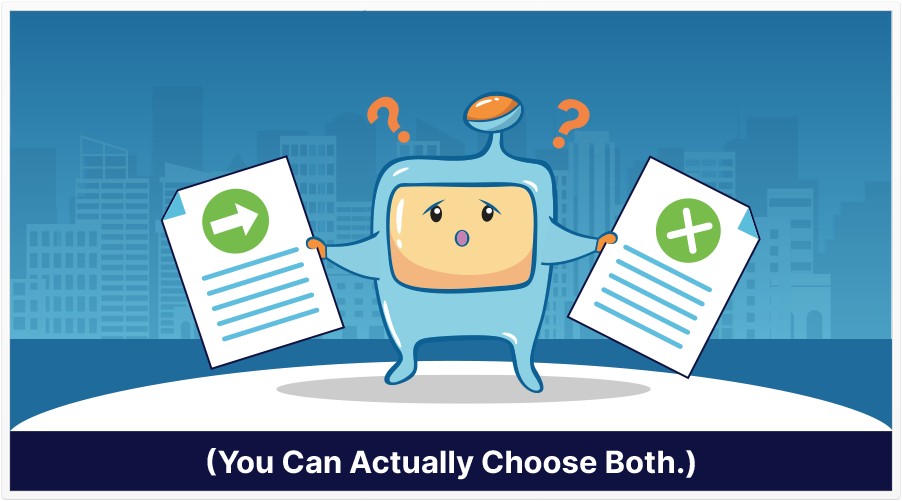
At the 16-minute, 47-second mark of the English Google SEO Office-Hours From November 12, 2021, a participant basically asked Google’s John Mueller for insight pertaining to a couple of options he had–that is, on whether to noindex or canonicalize various pages of his site.
The video below has been queued to the proper spot for you.
So, this is basically the participant’s situation (which I’ve edited for clarity):
“We have a website with an e-commerce store with a lot of product variations that have thin content or duplicate content…
“So like, this week, I made a list of all the URLs we want to keep or we want to have indexed–the best URLs that we have.
“And then, I made a list of all the URLs that we don’t want to have indexed. And the more I worked on it, the more I asked this question to myself: canonicalization or no indexing?
“And still, like, it doesn’t add up. I’m not sure what the better of those would be even if it might sound like a simple question, but it’s actually not.
“If you’re about to noindex the whole site, you better want to check again. So I don’t see what would be better in that situation.
My Position on This Situation
First of all, I’m not sure why he said ‘If you’re about to noindex the whole site.’
What…?
I can understand applying noindex to specific pages, but why would he want to noindex his entire site, or even consider that as an option?
If that were a viable option, then from an SEO perspective, I don’t think canonicalization would even be in the picture.
Personally, I wasn’t sure if this participant was overthinking his situation, or if it involved a level of sophistication that I previously haven’t encountered.
To me, it seemed clear: noindex if you don’t want the page indexed, or canonicalize the page to a page you want to reference to, which would be a page you want indexed or ranked.
John’s Response
But let’s read part of John’s response (which I’ve edited for clarity):
“I think the general question of ‘Should I use noindex or rel=canonical for another page’ is something where there probably isn’t an absolute answer. So that’s kind of just offhand.
“It’s like, if you’re struggling with that, you’re not the only person who’s like, ‘Oh, which one should I use?’
“That also usually means that both of these options can be OK. So usually, what I would look at there is what your really strong preference is. And if the strong preference is [that] you really don’t want this content to be shown at all in search, then I would use noindex.
“If your preference is more ‘I really want everything combined in one page, and if individual ones show up, like, whatever, but most of them should be combined,’ then I would use a rel=canonical.
“And ultimately, the effect is similar in that…well…it’s likely the page that you’re looking at won’t be shown in search. But with a noindex, it’s definitely not shown. And with a rel=canonical, it’s more likely not shown.”
You Can Actually Use Both
Near the end of addressing this particular situation, John mentioned a hybrid option: “You can also do both of them. And it’s something–if external links, for example, are pointing at this page, then having both of them there helps us to figure out, ‘Well, you don’t want this page indexed, but you also specified another one.’ So maybe some of the signals we can just forward along.”
By ‘signals’, I think John meant ranking signals. So, if links are pointing to a canonicalized page, the ranking signals of that canonicalized page would be passed to the page referenced in the rel=canonical.